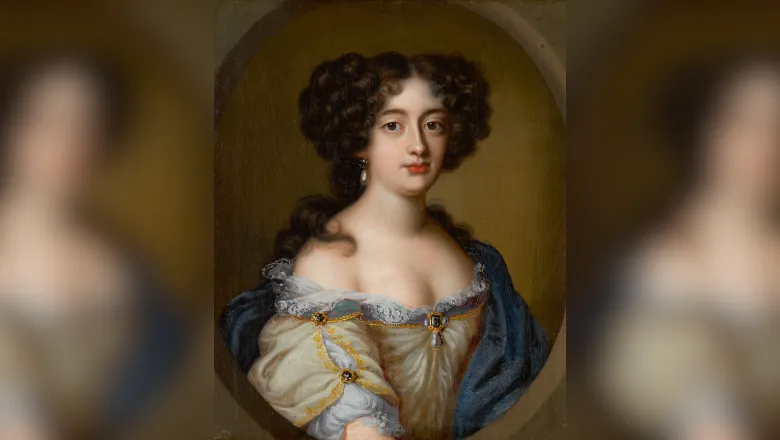Hortense Mancini’s salon was one of the most influential circles in late seventeenth-century London, both as an intellectual forum and as a Francophone network that became popular among the city’s French expatriate community. But it has rarely received attention. My book, which stems from my doctoral and post-doctoral studies, tells the story of that salon, its influence, and its survival in an era when cosmopolitan spaces were often viewed with suspicion.
Dr Annalisa Nicholson, British Academy Postdoctoral Fellow
27 November 2025
The original influencers: exiled women and the French salon in European culture
A new book explores how exiled women played a pivotal role in shaping elite culture in Restoration England through the introduction of the French salon model.

Dr Annalisa Nicholson, British Academy Postdoctoral Fellow in the Department of Languages, Literatures and Cultures, reveals how the concept of the salon was translated to the capital in A Salon-in-Exile: Hortense Mancini and the French Diaspora in Restoration London.
This is the first book-length study of the Mazarin salon in London, established by Hortense Mancini (Duchess of Mazarin) and Charles de Saint-Évremond in 1676. The salon hosted intellectual conversation, gambling, performance and literary collaboration, bringing together French and European exiles with Restoration London’s elite.
The French salon model
Ancien régime salons created space for mixed-gender intellectual exchange in early modern France. Often presided over by women, these salons hosted poetry recitals, performances and scientific lectures, and became vital cultural centres.
When the women who ran these salons were exiled from France, they took the model of the salon with them to new countries and audiences – meaning the concept of the salon also went into exile. Dr Nicholson proposes that this act of relocating the salon transformed the model into a pan-European space that welcomed a multilingual and multi-faith audience. While salons in France were geared towards their predominantly French Catholic attendees, Mancini’s salon developed a highly tolerant atmosphere to accommodate its visitors, half of whom were either a national or religious minority.
As an exile, Mancini used her exiled status to operate outside of the gender norms of both her home and host country. Historians have downplayed the importance of Mancini’s salon, sometimes referring to it as a mere gambling house – yet its capacity to create a heterogenous space where men and women participated in activities as equals was hugely significant.
Even its gambling activities were consequential. Women were not always allowed to manage their financial affairs at the time, especially if a male relative sought control over them, so the gaming table – at an establishment run by a woman – offered an opportunity to usurp patriarchal expectations.
Drawing on letters, memoirs, plays, operas and essays, Dr Nicholson’s book shows how salons facilitated conversations on topics such as politics and theology that women would typically have been excluded from.
An independent woman
Mancini was a celebrity exile, having fled to England in the late 17th century to escape an abusive marriage to a French duke. This coincided with the translation of her memoir into English, making her well-known across the continent; anticipation of her arrival was high.
Above: Dr Annalisa Nicholson explains how exile offered freedom to some women in the 16th and 17th centuries.
When she set up the Mazarin salon, it quickly became one of the most celebrated salons in Europe and attracted a vibrant Francophone community. The Mazarin salon cultivated engagement with European thought, French literature and epicurean philosophy – exerting influence on continental culture in England and demonstrating the level of power that an exiled woman was able to wield.
Mancini could be considered an ‘influencer’ in 17th-century society – for example, people often claimed portraits of other women were of Mancini instead to increase their value.
When Mancini’s salon starts reading a scientific text by Fontanelle, suddenly so many more people are interested in this text and Aphra Behn translates it very soon afterwards. You have this incredible ripple effect. When the salon does it, other people and places want to do it as well.
Dr Annalisa Nicholson, quoted in The Guardian
While historians have often focused on Mancini's affair with Charles II, her impact on culture has been overlooked. More is revealed in her correspondence, translated for the first time by Dr Nicholson in a collection set for release in December 2025.

